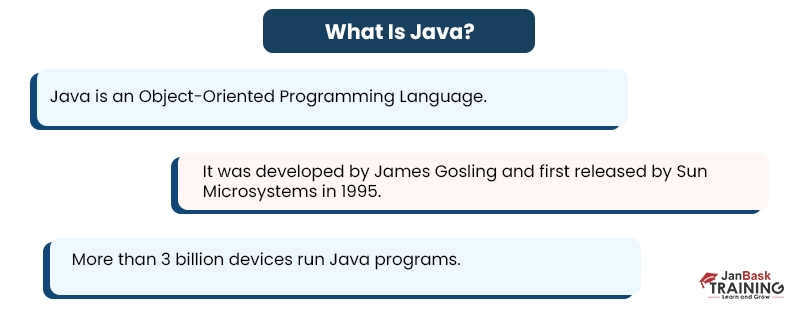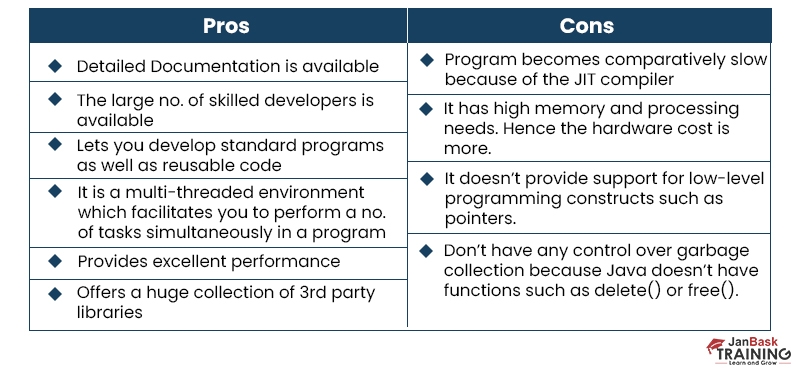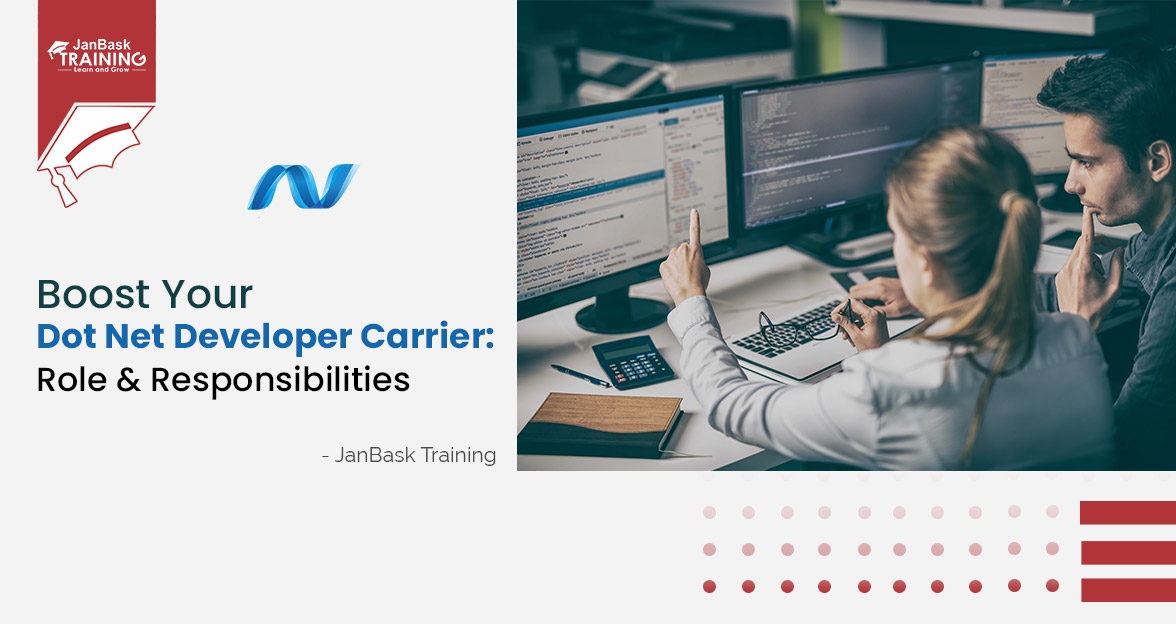Introduction
Java and C# both hold a strong position in the world of website development, cloud applications, client applications, big data, and far more key aspects of hi-tech programming. But having said that, in spite of having the same syntaxes, they aren’t the same. Therefore, when hiring for this type of job, it's important to understand the major differences between C# and Java, particularly if you don’t have technical knowledge.
In this blog, we’ll analyze the merits and demerits between two of the most extensively used programming languages: C # vs Java. At their center, both of them are powerful, high-level programming languages with more resemblances than dissimilarities.
One of the most important benefits of learning either is that their core similarities make it easier to learn one language after becoming an expert in another. Collectively, we’ll briefly introduce C# and Java, their key differences, their history and characteristics, and how online Java training can be helpful to you.
Let’s buckle down!
A Quick Introduction to Java and C#
Programmers worldwide extensively use Java and C# to develop different types of programs and applications, together with mobile applications, desktop applications, cloud-based applications, and services, websites, business applications, software, games, etc., and popularizing them. Let’s learn in detail about both of them.
What is C#?
C# is a high-level object-oriented programming language; most importantly, it’s the first component-oriented programming language. Like Java, C# is also a widely used language because its flexible, easily learnable, and provides large community support, contributing several to constructing new C# software and tools.
As an ideal programming language, C# helps OOP besides functional, structured, crucial, insightful, and coexistent programming standards.
C# runs oe .NET platform, which is comprised of 2 major components:
.NET Framework Class Library (FCL): It is a collection of various types of classes, interfaces, and data types, that are used to design .NET apps.
- Frameworks
- Utility features are written in .NET
- Wrappers around OS functionality
Common Language Runtime (CLR): It makes use of JIT (Just-In-Time) compilation for compiling C# code utilized for .NET applications.
C# : Common Applications
- Game development
- Microsoft Applications
- Web applications
- Desktop applications and many more!
What is Java?
Java is a general-purpose, high-level, object-oriented programming language, and it is most popular among developers due to its simplicity, flexibility, and versatility. Because of its well-established and huge Java community, anyone considering starting a Java project will come to know they’ve access to a large collection of helpful open-source libraries and tools.

JDK (i.e. Java Development Kit) or Java Platform are the software development environments utilized for developing and running Java apps and components. Java development kit can be built on Windows, macOS, Linux, and Solaris.
Java Platform is a sequence of nested packages as follows:
Java Runtime Environment i.e. JRE, is an installation package that builds an environment where you can only execute a Java program or application. It comprises class libraries, loader classes, and the Java Virtual Machine as mentioned below:
- Java Virtual Machine
- Libraries
- Development Tools (javac, java, etc.)
- Other files
Java Virtual Machine i.e. JVM, is an interpreter and offers a runtime environment to your code. It is a crucial part of both Java Development Kit and Java Runtime Environment because it is responsible for running through each and every line of the Java program to run it.
Java : Common Applications
Even if Java is a quarter-century old, it is still the most popular programming language, in spite of the introduction of numerous newer programming languages and tools. Here are some of the common Java applications:
- Front end development
- Back end development
- Mobile applications
- Big data analytics
- Scientific computation applications
- Machine learning
- Data science and much more!
History and Fundamentals of C# and Java
Learning about history helps us understand and deal with complicated questions and difficulties by analyzing how the past has evolved.
History of C# and Java
C# was developed by Andres Hejlsberg from Microsoft in 2000 and afterward became popular as a worldwide standard by Ecma in 2002 and ISO in 2003. Microsoft then released C# together with the .NET framework and Visual Studio.
Father of Java, James Gosling in 1995, developed Java at Sun Microsystems, which Oracle Corporation later acquired.
Fundamentals of C# and Java
C# is an object-oriented and component-oriented programming language that helps developers create various safe and powerful .NET apps. C# programs are carried out using the .NET platform, which is a virtual execution environment referred to as the CLR, i.e., ( Common Language Runtime), and it has a collection of class libraries.
Java is also an object-oriented, general-purpose programming language providing a computing platform. Most applications and websites won’t function properly unless and until Java is implemented. It is the most widely used programming language, and its principles and grammar are mostly based on the C and C++ programming languages.
Characteristics of Java and C#
Characteristics of Java
Since Java was introduced, it has become the talk of the town. Java’s persistence is excellent, taking into consideration the fact that new technologies can easily replace old ones that too at an awe-inspiring rate.
More than a couple of decades since its introduction, Java is still the most widely used language in software development. At present, Java is the most viable option for every type of developer, irrespective of the type of work they do. Let’s now look at the characteristics of Java:
- A multi-platform, object-oriented, network-centric programming language
- A Network-centric programming language, i.e., a Java program, can be executed on almost any computer platform
- Mainly designed for building object-oriented online applications.
- Helps in integrating object-oriented programming model
- Create objects in Java.
Characteristics of C#
C# is an extensively used programming language for developing different kinds of applications in the .NET environment. Its simple syntax, object-oriented nature, and platform independence make it simple and easy for the developers to manage their code and make it more readable.
Here are the characteristics of C#
- Support for automatic Garbage Collection
- Provides Standard Library
- Assembly Versioning
- Conditional Compilation
- Simple Multithreading
- Lambda and LINQ Expressions
- Integration with Windows
Comparison of Java and C# languages
The below-listed properties or features can compare Java and C#. They are quite different and similar to each other. Here in this article, we will see the differences between C# and Java on the basis of the below-listed points:
- Syntactic Base
- Object Tools
- Data Types
- Imperative Features
- Dynamic Data handling
- Other additional parameters
The above-listed features or points will show you the differences or similarities between both languages. Let us discuss them in the next section.
C# vs Java Comparison: Based On Syntactic Base
Java and C# both use C as the syntactic base; in other words, both languages use the syntax of C language. However, still, there are some syntactic differences between C# and Java. They are listed below:
C# vs Java Comparison: Based On Object Tools
Here, data and code can only be described in the classes. So as per the below-listed features, the differences are being identified and listed:

C# vs Java Comparison: Based On Data Types
Both Java and C# languages support primitive data types and provide boxing and unboxing of objects. In C#, primitive types are treated as objects. On the other hand, Java does not support unsigned integers.
Are you a fresher looking to learn C# programming from scratch? You can refer to the C# programming tutorial for beginners.
In C#, enumerated types are derived from primitive types. In the case of Java, enumerated types are represented as classes, while values of the enumerated types are represented as objects.
C# vs Java Comparison: Based On Imperative Features
Both C# and Java have some of the essential features that are defined below
|
C# Imperative Features
|
Java Imperative Features
|
- Lambda Functions
- Delegates
- Operator Overloading
- Yield support in iterations
- Extension Methods
|
- Support for strict static types
- A simplified version of C++
- Cross-platform support
- Cost friendly
- Complete backward compatibility
- Vast library
|
C# vs Java Comparison: Based On Dynamic Data Handling
Both the languages Java and C# work similarly and have the same model and way of working with dynamic data: The execution environment tracks the presence of links of the objects while garbage collectors usually clear the memory periodically. Weak and strong references to the objects in both languages support finalizer methods.
As the objects can be asked at any time to free the memory, it cannot be predicted when the object will release it. Due to this, additional methods are created to clean the memory and are called explicitly.
In C#, auto cleaning is performed for the objects, while in Java <> structure is being used that is quite autonomous to the one used in C#. In Java, listeners are added to receive the messages when garbage collection is to be performed; due to this Weak Hash Map has been improved a lot. Both languages support generic programming methods.
C# VS Java Comparison: Based On Other Parameters


C# vs Java - Which One to Choose?
As we have discussed, we can choose anyone Java or C# at your convenience. Depending on the advantages, features, and structure, one can choose any of these languages; here, the choice of any language also depends on the particular programming, experience, or style.
Depending on the functionality and feature of the language, you can choose the appropriate language and use it as per their performance. One day they will be replaced by some universal or advanced features.
Just in case you wish to keep your options open, let’s look at the history of C# and Java.
Pros and Cons of Java

How Online Java Training Can Help You?
Online Java training provided by JanBask Training will help you learn Java by encompassing Java OOP concepts, skills, and techniques required for Java certification exams and different job roles. It is a unified and comprehensive Java training program that helps you master basic to advanced skills in Java.
This course will help you to be an industry-ready Java professional. In order to understand the roadmap of our online Java training in-depth, enroll in our free Java demo class, as it’ll give you a clear idea of what you need to expect through this course.
Conclusion
We hope this comprehensive C# vs Java tutorial has simplified the differences between these two languages and must have helped you understand their basic functionalities and to decide which programming language is right for you.
Online Java training by Janbask Training provides first-hand training experience in front-end, middleware, and back-end Java technologies, together with mastering the basic to advanced skills with real-world problem-solving related to the concepts of Core Java, Advanced Java, JDBC, Servlet, JSP, JavaScript, Spring, Struts, Hibernate Frameworks, Java 2EE, Java Beans, Java Servlets, Web Service APIs and more.
Do let us know if you have any doubts. Leave your doubts or queries in the comments section, and our experts will contact you soon!
Other Online Programming Courses You Must Consider!
FAQs
Q1. What is the objective of your online Java training?
Ans:- Our online Java training course aims to provide candidates with a Java certification online course that offers learning experiences like offline classrooms and saves them from the daily stress of traveling to offline classes. This course also helps candidates master the concepts, skills, and techniques required for certifications and job roles.
Q2. What skills will I learn through this Java online training?
Ans:- Candidates will learn the following skills through our all-inclusive Java online training course:
- Core Java, Oops Concept, Data types, Variables
- Flow, Statement, Collections, Error Handling
- JDBC, Servlet, Servlet API
- Java Server Page (JSP), Javascript
- Spring, AJAX, Hibernate Framework
- Java 2EE
- Struts Framework, SOA, Web Services
Q3. What all topics will be covered in the beginner’s level Java programming certification course?
Ans:- Our Java programming certification course starts with basics of Java, and our first few weeks are for beginners to learn about the introductory concepts of Java like -
Java Fundamentals, Oops, Data types, Class
- Java – What, Where, and Why?
- History, Features, Architecture of Java
- OOP in Java, Class Fundamentals, Objects,
- What is Java constructor
- Packages, Interfaces
- Inheritance and Polymorphism
- Programming Languages
- Pillars Of Object Oriented Programming
- OOPS concepts and terminology
- What are data types? Primitive Data Types & Declarations
- Variables & Types
- Variable declaration & initialization
- Numeric & Character Literals
- String formatting and Parsing
- Arrays, Non-Primitive Data Types
- What are Methods?Method Structure
- Declaration Of Methods
- Expressions, different Operator
- The Conditional Operator
Q4. What all topics will be covered in the Advanced level of the online Java training course?
Ans:- After completing the beginner’s level training, a quick revision of introductory concepts taught so far will be taken. Then Java advanced training will start, where the following topics will be covered:
- Flow, Statement, Collections, Error Handling
- JDBC, Servlet, Servlet API
- Java Server Page (JSP), Javascript
- Spring, AJAX, Hibernate Frameworks
- Struts Framework, SOA, Web Service APIs
Q5. What can I expect after the completion of the online Java training course?
Ans:- After completing our online Java training course, you’ll achieve:
- Complete knowledge & skills required for the Java certification exam.
- Earn lucrative Java-led job roles.
Q6. Can I get a free demo class?
Ans:- You can enroll in our free demo class for a quick roadmap of our online Java training program. Our free Java demo class aims to take you through all the aspects we cover in our Java certification training online journey.
Q7. What are the prerequisites for joining this online Java Training course?
Ans:- No, there aren’t any prerequisites to join our online Java training course. And there’s no mandatory requirement to have prior technical knowledge to take our online Java training course. Buts it's beneficial if you’ve some technology background or basic programming knowledge, but again it's not mandatory.
Q8. What are the benefits of earning a Java certificate?
Ans:- This certification helps aspirants to gain an edge over competitors, master job-ready skills, increase the possibility of getting hired, provide support in salary discussions, reflect candidates' proven skills, etc.
Q9. Which types of Java certifications are beneficial for career development?
Ans:- Based on your career requirements and experience, here are some of the most sought-after Java certifications that can be considered qualifying after completing Java training:
- Oracle Java Certification
- Oracle Certified Associate Java Programmer (OCAJP) [Java SE 8 Programmer I]
- Oracle Certified Associate Java Programmer (OCAJP) [Java SE 11 Programmer I]
- Oracle Certified Professional Java Programmer (OCPJP) [Java SE 8 Programmer II]
- Oracle Certified Professional Java Programmer (OCPJP) [Java SE 11 Programmer II]
- Oracle Certified Professional Java Application Developer (OCPJAD)
- Java Certification OCA (1Z0-808) Exam
Q10. What job roles can I look forward to in my future path of Java Career?
Ans:- Here are some of the fast-growing & top industry-demanded job roles in the Java field that you must aim for through our all-inclusive Java online training:
- Java Developer
- Java programmer
- Quality Analyst
- Software Consultant
- Product Manager
- Subject Matter Expert (SME)
Dotnet Course
Upcoming Batches
Trending Courses
Cyber Security
- Introduction to cybersecurity
- Cryptography and Secure Communication
- Cloud Computing Architectural Framework
- Security Architectures and Models
Upcoming Class
7 days 25 Jul 2025
QA
- Introduction and Software Testing
- Software Test Life Cycle
- Automation Testing and API Testing
- Selenium framework development using Testing
Upcoming Class
-0 day 18 Jul 2025
Salesforce
- Salesforce Configuration Introduction
- Security & Automation Process
- Sales & Service Cloud
- Apex Programming, SOQL & SOSL
Upcoming Class
5 days 23 Jul 2025
Business Analyst
- BA & Stakeholders Overview
- BPMN, Requirement Elicitation
- BA Tools & Design Documents
- Enterprise Analysis, Agile & Scrum
Upcoming Class
7 days 25 Jul 2025
MS SQL Server
- Introduction & Database Query
- Programming, Indexes & System Functions
- SSIS Package Development Procedures
- SSRS Report Design
Upcoming Class
7 days 25 Jul 2025
Data Science
- Data Science Introduction
- Hadoop and Spark Overview
- Python & Intro to R Programming
- Machine Learning
Upcoming Class
-0 day 18 Jul 2025
DevOps
- Intro to DevOps
- GIT and Maven
- Jenkins & Ansible
- Docker and Cloud Computing
Upcoming Class
1 day 19 Jul 2025
Hadoop
- Architecture, HDFS & MapReduce
- Unix Shell & Apache Pig Installation
- HIVE Installation & User-Defined Functions
- SQOOP & Hbase Installation
Upcoming Class
-0 day 18 Jul 2025
Python
- Features of Python
- Python Editors and IDEs
- Data types and Variables
- Python File Operation
Upcoming Class
7 days 25 Jul 2025
Artificial Intelligence
- Components of AI
- Categories of Machine Learning
- Recurrent Neural Networks
- Recurrent Neural Networks
Upcoming Class
-0 day 18 Jul 2025
Machine Learning
- Introduction to Machine Learning & Python
- Machine Learning: Supervised Learning
- Machine Learning: Unsupervised Learning
Upcoming Class
7 days 25 Jul 2025
Tableau
- Introduction to Tableau Desktop
- Data Transformation Methods
- Configuring tableau server
- Integration with R & Hadoop
Upcoming Class
-0 day 18 Jul 2025






























